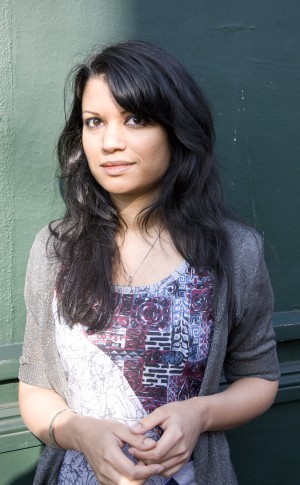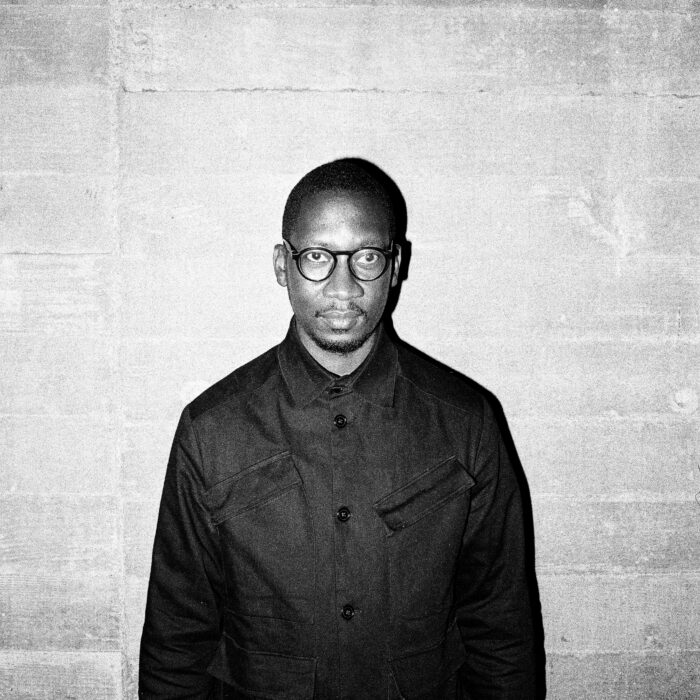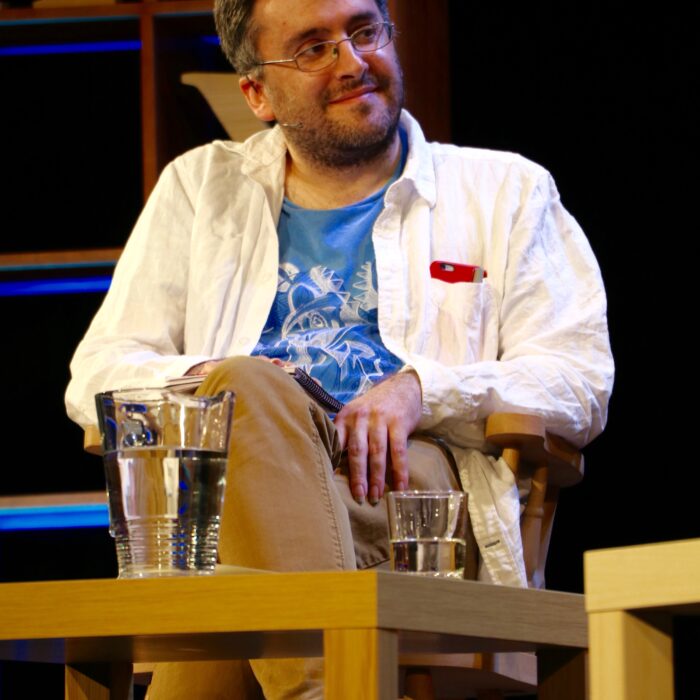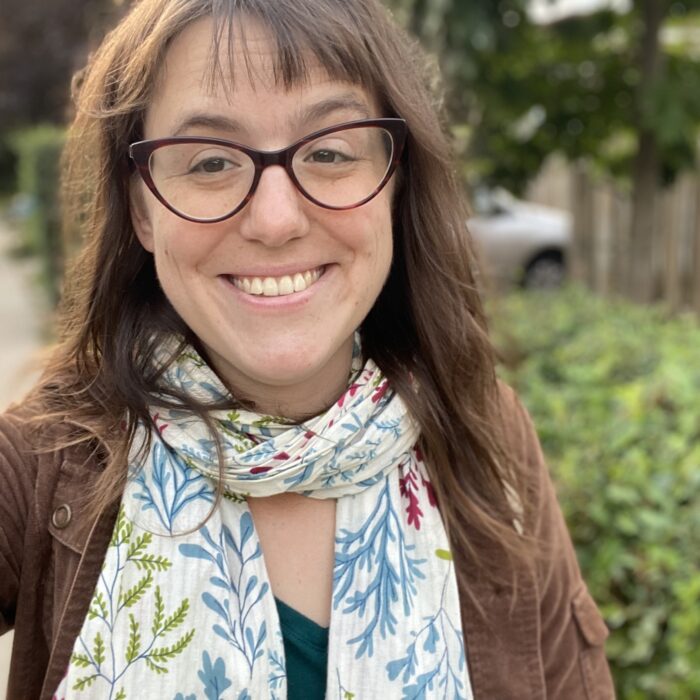You have no items in your cart. Want to get some nice things?
Go shopping
Anjali Joseph is the author of two critically acclaimed novels, Saraswati Park and Another Country. She has been tipped as one of the Telegraph‘s 20 writers under 40, and Saraswati Park won the Desmond Elliott and Betty Trask Prizes and was shortlisted for the Ondaatje Award and the Commonwealth Writers’ Prize.
Born in Bombay in 1978, she read English at Trinity College, Cambridge, and has worked as an English teacher at the Sorbonne and a Commissioning Editor for ELLE India. She can be found at anjalijoseph.com or on Twitter @anjalij.
She talks to us about being at home with her own strangeness, assisting Sherlock Holmes in India, and literary friendships.
Describe your earliest memory.
I’m about two years old, and am crawling about on my grandparents’ kitchen table in their Bandra apartment, amid large jars of pickle, drinking chocolate, jam, and stacks of papers. Both my grandparents are nearby.
What was the first book you ever loved? Why?
Probably comic books, and the Tintin books. I also liked the poems in When we were very young and Now we are six which my mother used to read to us. The illustrations were good too. I can see Bad King John now. And there was a volume of Hans Christian Andersen stories that I still have. The story of the goblin who lives in the grocer’s house but keeps going upstairs in the evenings to listen to the dreamy student read out to him is my favourite of them.
Tell us about the first time you realised that the world may not be as it seems.
Quite early on I realised it seemed quite different to me than it did to other people, but not much later I learnt to conceal that. When I was in sixth form I studied philosophy, and I remember loving the way this sense of disorientation could be formalised into an academic discipline.
What has been the most formative place in your life? Why?
Bombay was always home — originally, and then in a talismanic, remembered way. I still love the city for its blitheness and insouciance and beauty (and the weather, and the way it smells), but for the first time I tend to feel at home wherever I am.
Which literary or historical character do you most identify with? Why?
A Beckett tramp in any of his non-dramatic prose. I’m at home with my own strangeness and don’t always understand the rules of the world. And I like hats.
Which literary character could you have a romantic crush on and why? How would you win him/her over?
I think I had a crush on J. D. Salinger’s Seymour Glass, and before that, a non-romantic but intense crush on Sherlock Holmes. A mystery was going to bring him to Bombay and I’d help out. Afterwards, he’d hand over the business to me when he retired. I’m not too sure how Dr. Watson figured in this. And finally, in common with anyone else who’s read Upamanyu Chatterjee’s English, August: An Indian Story, I have an enduring affection for his protagonist Agastya Sen, though it’s less an urge to jump him than be friends with him.
What do you do when you’re not reading or writing?
All the things everyone does: think about writing, sleep, exercise, have sex, masturbate, worry, wonder if there are things I’ve forgotten to worry about, resolve to worry less, write to-do lists beginning “buy milk”, run out of milk.
Describe your most defining experience with money.
I don’t know, but the image that floated into my mind was of the now-defunct little azure five-rupee note, which I loved because of the colour. It was my first weekly pocket money when I was five or six.
If you could time-travel and teleport, which literary world would you want to visit? Why?
Maybe I’d slip into the world of a F. Scott Fitzgerald story like “Winter Dreams” or “The Diamond as Big as the Ritz”, or even This Side of Paradise. Or into a Kawabata novel like Snow Country or Thousand Cranes, where the drama is that the characters are always agonisingly aware of their fears and desires, and how indifferent eternity — and real beauty — is to them.
Being a writer is a strange brand of “celebrity”. Tell us about your most memorable encounter.
The strange thing about meeting a writer whose work you admire is that you want to meet them because of the work, but when you meet them you want — or I want — to connect on the normal human level. So really you’re trying to make friends in a normal way. This doesn’t always work. I don’t think I understand or am particularly drawn to the idea of literary friendships where the accent is on literariness rather than friendship, but I do have some very good friends who are writers. Liking someone and feeling close to them and being able to share that particular, pointed, verbal experience of the world is a lovely thing; though it isn’t only writers who are able to do that.
What’s the most extreme thing you’ve done in pursuit of reading or writing?
Extreme? I’ve paid absurd sums of money in order to transport books from one place to another, and I’m sure I’ll have to do that again. One day, when I come into some money and have a permanent place to live, I plan to get some fitted bookshelves made.
If you were to write yourself as a character, what would be your most defining characteristic? (Write us a paragraph, too, if you like.)
I wouldn’t. Or: they’re all me.
If you were to write a novel about an anti-hero/-heroine, what would his/her central flaw be?
Discontent. The inability to be at rest where you are, or to be happy, can lead to some quite widespread unpleasantness.
If you could have a superpower, what would it be? Why?
Enlightenment. Because then everything else would be pretty simple. (I suspect everything else is actually pretty simple.)
If you were to find yourself in a Farenheit 451 world, which book would you save and why?
The idea of a world with only one book in it is too weird. Maybe something long that I haven’t yet read, like the unabridged Mahabharata. Or the Iliad. Something that bears re-reading.
What is the most valuable piece of advice you would give a person for a life well-lived?
Buy the ticket, take the ride. Do whatever you’re drawn to and do it with passion and an open heart.
What question do you wish we’d asked you? Answer it.
I feel thoroughly examined.
What’s next for you, work- and life-wise?
I’m working on another novel. Everything else is indeterminate, but that’s exciting.





Winner of the 2011 Desmond Elliott Prize, @anjalij talks to Litro about writing, superpowers & literary crushes: https://t.co/Fdht4vtYNI